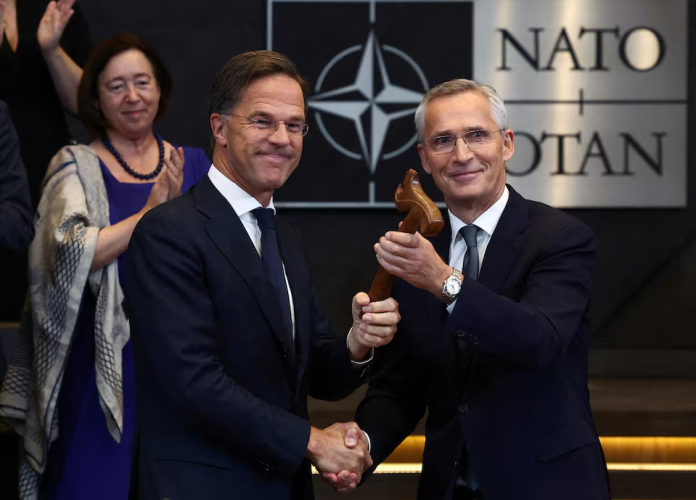New NATO chief Mark Rutte pledged to boost support for war-torn Ukraine when he headed the alliance, according to The Independent.
We have to make sure that Ukraine prevails as a sovereign, independent, democratic nation.
The former Dutch prime minister officially succeeded Jens Stoltenberg as NATO secretary general on Tuesday. His appointment came at an important moment for NATO, with the US election just weeks away.
The secretary-general said during a press conference on Tuesday that he could work with either Donald Trump or Kamala Harris and appreciated that Ukraine would be his top priority.
“I will be able to work with both. Whatever is the outcome of the election.”
Rutte, 57, was prime minister of the Netherlands until he resigned earlier this year following the collapse of his coalition government in 2023. He was appointed to lead NATO in June.
The cost of supporting Ukraine is far, far lower than the cost we would face if we allow Putin to get his way.
One of Rutte’s key tasks will be to persuade NATO members to commit additional troops, weapons and spending to strengthen the alliance’s collective defence.
“We need to do more in terms of our collective defence and deterrence. We have to invest more and close the capability gaps and try to achieve all the targets NATO has set here.”
Military aid at risk
However, Ukraine’s allies are struggling financially, jeopardising further shipments of money and weapons, according to Bloomberg. People familiar with the matter said some even refused to increase funding to help Kyiv.
Much of Ukraine’s military aid for 2025 is tied to a G7 deal to provide $50 billion in loans from the profits of frozen Russian central bank assets. However, even if an agreement is reached, the $50 billion is still not enough to meet Ukraine’s needs for another year of war, military analysts warned.
Meanwhile, Polish Defence Minister Władysław Kosiniak-Kamysz called Ukraine an ungrateful recipient of military aid.
There is no memory of this aid from Ukraine’s side.
Kosiniak-Kamysz argued that the first Ukrainian statements were very ambitious and the number of Ukrainians who were supposed to apply to join the special brigade in Poland was too small. Aid to Ukraine amounted to 3.3 per cent of Poland’s GDP or 100 billion zlotys ($26 billion). This included humanitarian aid and military supplies, which reached $5bn.
